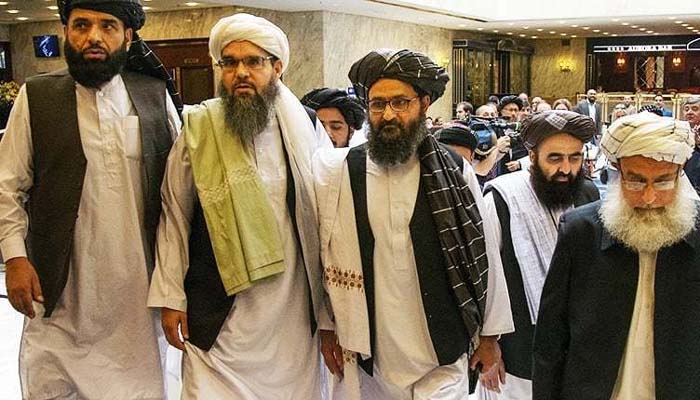TRENDING TAGS :
US welcomes proposed intra-Afghan talks in China
The United States has welcomed China's proposal to host a fresh meeting bringing together Afghan officials and the Taliban, after President Donald Trump abruptly ended talks with the insurgents.
Washington: The United States has welcomed China's proposal to host a fresh meeting bringing together Afghan officials and the Taliban, after President Donald Trump abruptly ended talks with the insurgents.
ALSO READ:Cooperation on security issues between India-SA progressing well: PM
The Taliban last week said that China invited a delegation to talks in Beijing, the second such meeting after a dialogue in Qatar in July that was co-arranged with Germany.
Zalmay Khalilzad, the US special envoy on Afghan peace, met with his colleagues from China, Russia and Pakistan last week in Moscow, where the four countries renewed support for a "comprehensive and sustainable peace agreement."
The four countries "welcomed the Chinese proposal to host the next intra-Afghan meeting in Beijing," said a joint statement released Monday by the United States.
The talks will include "a wide range of political figures" including "representatives of the government of the Islamic Republic of Afghanistan, other Afghan leaders and the Taliban," it said.
There was however some confusion about when the talks might take place.
The Taliban last week said the conference would happen October 29-30, but on Monday an insurgent spokesman denied a report that said a Taliban delegation was in Beijing.
The Chinese government also failed to confirm the talks when asked at a regular press briefing on Tuesday, but said it would support an "Afghan-owned peace and reconciliation process".
"China is willing to provide facilitation and assistance to promote the Afghan peace and reconciliation process, including internal Afghan dialogue and negotiation, on the basis of respect for the wishes of all parties," said foreign ministry spokesman Geng Shuang.
ALSO READ:Shiva Thapa, six others enter semifinals of Olympic Test event for boxing
The Taliban have refused to negotiate formally with the Kabul government, but the Beijing and Doha gatherings are seen as fostering dialogue and planting the seeds of an eventual brokered solution.
Khalilzad negotiated for a year with the Taliban, reaching an agreement under which the United States would withdraw troops and end its longest war.
But Trump last month ended the talks, withdrawing an invitation he said he extended to the Taliban to meet near Washington, citing the killing of a US soldier.
The United States has frequently tried to blunt the global influence of China and Russia, but Khalilzad has frequently consulted with the two on his search for Afghan peace.
China shares a 76-kilometre (45-mile) border with Afghanistan and has voiced concern about a spread of Islamic extremism, while the Soviet Union in the 1980s led a disastrous intervention in the country against Islamic guerrillas then backed by Washington.
For the second time, the three powers opted to include Pakistan, which was the main backer of the Taliban's 1996-2001 regime and maintains contacts with the fighters.
ALSO READ: UP man stabbed for resisting his cousin’s harassers, succumbs



